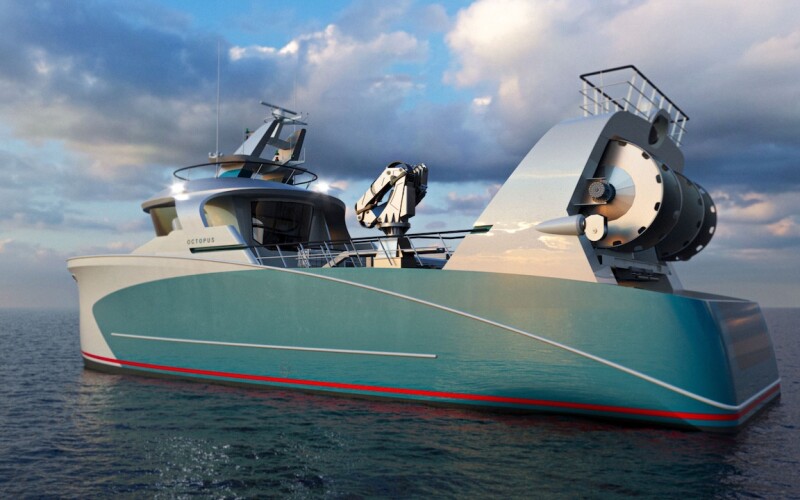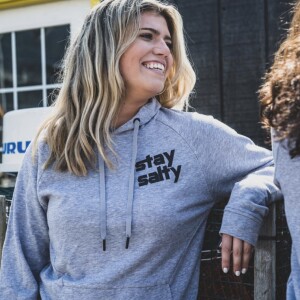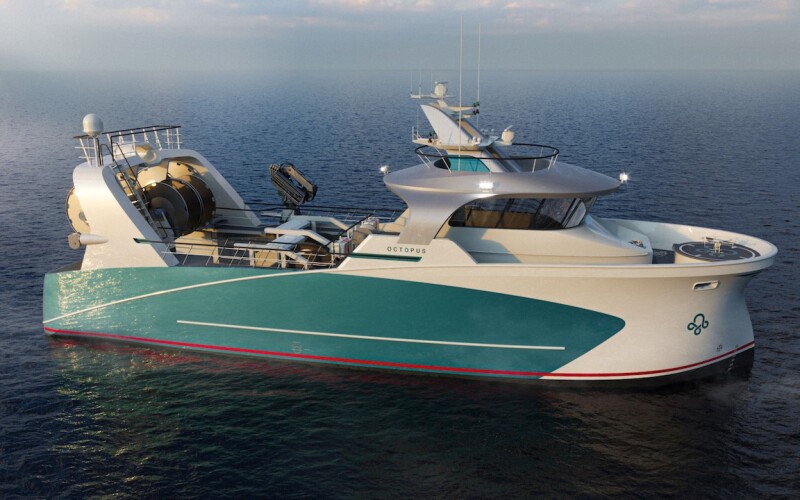Dutch shipyard Padmos shared their first images of the multifunctional fishing vessel, the ‘Octopus’ project. Walter van Harberden, a naval architect and one of the directors of the shipyard, is the brains behind the project. Octopus has been called more than just a fishing vessel, and its diesel-electric-powered engines could be entirely powered by another energy source in the future.
Hook and Net Mag shared that this could be possible thanks to the vessel’s modular structure. The boat will have a bare hull with removable containers for storing batteries or hydrogen. The construction of the first Octopus is said to start in August 2024.
Jacob Brands, a Dutch fisherman, placed the first order of the Octopus vessel. His last boat, UK-161, was scrapped, and the one before that sank off the French coast in 2020. Hook and Net shared that the amount that Brands received for the scrapped vessel would not allow him to invest in new construction, so he began looking towards other investors, particularly in the seafood processing sector.

The vessel will be versatile and be used for more purposes than just fishing. Van Harberden explained to Hook and Net, “When the fishing season is over, we can replace the containers for storing fish with containers for other types of equipment.”
The boat bow will be adapted to different fishing operations such as fly-shooting, twin rig trawl, and single trawl, similarly to a real octopus’ eight legs. Van Harberden has planned a system inside the boat to move containers quickly.
“The containers will allow fish to be chilled or frozen, and unloading product will be less tedious thanks to using a crane,” shared Van Harberden.
The Padmos Shipyard specializes in the construction of many types of fishing boats and repairs on fishing vessels and workboats. Leon Padmos, managing director of the shipyard, said, “It’s very futuristic. And it’s a modular and tailor-made boat.”
Brands’ project will cost around $6.5 to 8.7 million for the almost 100-foot vessel, depending on his chosen features.
“We like innovation. If possible, we always stay one step ahead,” shared Padmos.
Many questions remain about the project’s acceptability to government departments and bodies such as the Bureau Veritas. Padmos comments,
“Discussion with the Dutch authorities are ongoing. Knowing that the fishing industry is changing and that the industry needs to find answers to concerns such as the shortage of resources and the ecological transition. There will always be fishing activity.”







